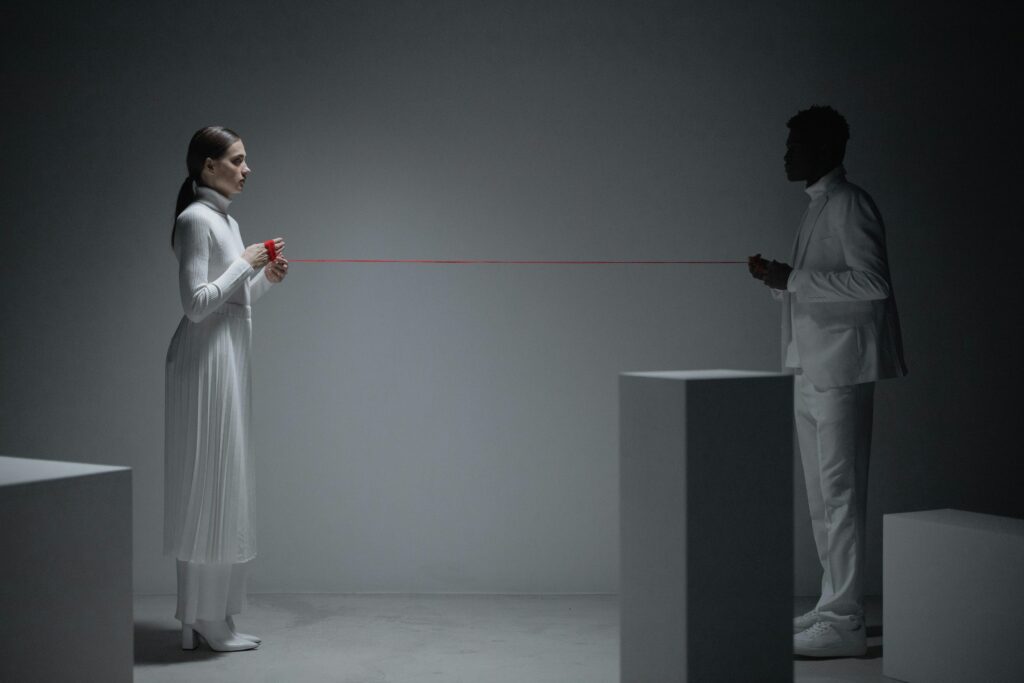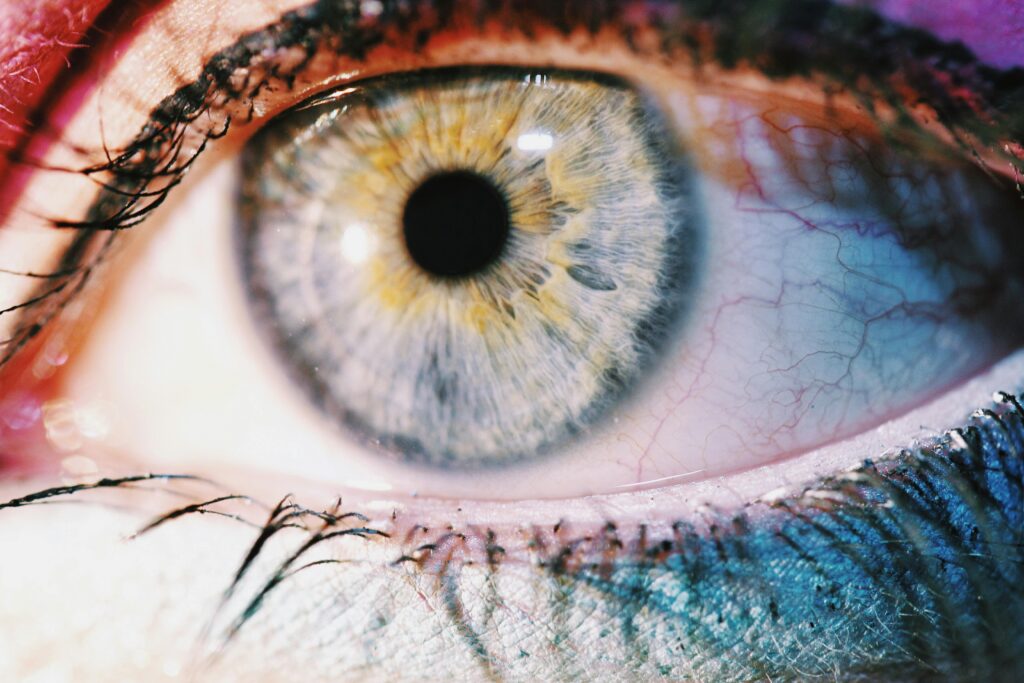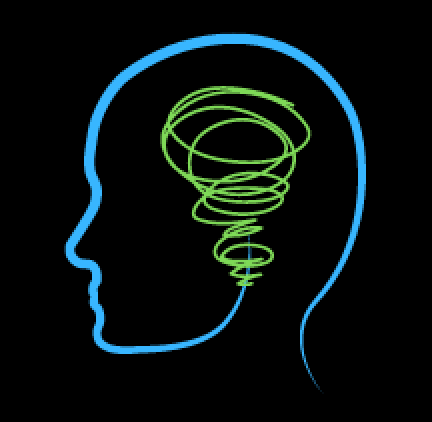I listen as the word bipolar is thrown around, tossed carelessly; passive labels being slung at individuals perceived as “crazy.” The notion that people have only two discernible sides. The up, the mania; the high paled by the low, the depression. But there is so much more in between.
It wasn’t until after having my two daughters, and being in my thirties, that I was diagnosed with an answer that seemed to fit: bipolar II.
Misdiagnosed: Struggle with Depression
Depression has been an unwanted companion since my late teens. Pulled from college in my senior year as my self-hatred and dark thoughts tried to swallow me whole, my parents scooping me up and taking me home, allowing my brain time to heal itself.
I remember sitting on the carpet in the mauve living room, my dad on the tan sectional. Overwhelmed by a sense that I was running out of time, I wanted to know every detail of his life. Afraid that he would leave, and there would be so much of his life, and of him as a person, that I didn’t know: about his childhood, his brothers, his feelings, his fears. He assured me we had time. We wouldn’t.
Diagnosed again and again with major depression as I moved from one state to the next. I travelled first with the Army and then the Air Force. I was prescribed a slew of medications which never seemed to keep the thought spirals, negative self-talk, and unbearable emptiness at bay.
My mind would start to turn on itself, sneaking up slowly, playing both the bully and the victim.

Misdiagnosis of Bipolar
Bipolar is characterized by shifts in mood that range from mania/hypomania to depression. While both individuals with bipolar I and bipolar II struggle with depression, individuals with bipolar I experience mania and individuals with bipolar II experience hypomania.
It is the debilitating depression that most often leads individuals to seek out help,whether through talk therapy or symptom management with medication. Depression can be the first symptom that muddies the water for a clear diagnosis.
Bipolar is mistaken for:
- Major depression
- ADHD
- Schizophrenia
- Borderline personality disorder
- Substance use disorder
- Generalized anxiety disorder
Effects of a Misdiagnosis
While it may appear innocuous to have a diagnosis of depression, especially since depression is a part of the bipolar diagnosis. Being prescribed antidepressants alone, without a mood stabilizer, can cause detrimental effects.
Antidepressants can contribute to the development of manic episodes and may trigger rapid cycling in individuals with bipolar. This cycling between emotional states dangerously increases the risk of suicide; which is attempted at least once by 20- 60% of individuals with bipolar disorder. According to doctors Singh and Rajput in Misdiagnosis of Bipolar Disorder, 55% of patients originally treated with antidepressants alone developed mania, and 73% of patients experienced rapid cycling.
A survey by the National Depressive and Manic-Depressive Association (DMDA) revealed that 69% of patients with diagnosed bipolar received an initial misdiagnosis. One-third of those patients remained undiagnosed for 10+ years.
It would take approximately 17 years from my initial onset of depression until my diagnosis of bipolar II.
What Exactly is Bipolar II?
Individuals with bipolar II tend to experience prolonged stints of depression and a more mild form of mania called hypomania.
Symptoms of hypomania include:
- Decreased need for sleep
- Excessive spending
- Racing thoughts
- Hyper-sexuality
- Increased energy and hyperactivity
- Inflated self-image
- Making and pursuing grandiose, unrealistic plans
- Rapid speech
- Substance abuse
When experiencing hypomania, or an up, my energy is unwavering: furniture is rearranged, painting projects are taken on, and I decide I need a new sewing machine in order to sew pillows for our deck chairs.
Self-confidence is heightened during these times, so I joined a drum band, not knowing how to play or read music; started my own jewelry business, only selling to family, and joined an improv class, which I didn’t have the guts to complete.
When the up passes, and the lows persist, the sewing machine sits undisturbed, and the negative self-talk rears its head with a vengeance. My mind tells me all the things I can’t do, all the ways I’m not good enough, that I’m failing my children because I don’t give them the attention they need, that I make a bigger deal out of relationship issues than there really are.
Comorbidities Associated with Bipolar

While bipolar is often misdiagnosed, it is important to note that there are many illnesses and disorders that often accompany a diagnosis.
- Panic disorder
- Obsessive compulsive disorder
- Social phobia
- Anxiety disorders
- Eating disorders
- Alcohol abuse or dependence
- Drug abuse or dependence
- ADHD
- Personality disorders
While bipolar, ADHD, and anxiety are the main contributors to the current state of my mental health, I would be remiss to not mention that I have also struggled in the past with eating disorders, OCD, and substance dependency.
Raising Awareness

While it can be difficult to receive a proper diagnosis, there is also a stigma and shame that surround bipolar. I have found myself withholding my diagnosis, desperate to be seen, but afraid of being judged.
As a mother, I encourage my girls to be unapologetically themselves. To not allow the anxiety, depression, and ADHD that plague my oldest to define her, or my youngest who is diagnosed with Down Syndrome to know that being different and unique are some of the many special traits I love about both of them. I want to raise strong girls who love themselves. Who know that their value is so much more than just their diagnoses.
Through this blog, I hope to inspire others to lower their guard, and be their authentic, messy selves. I am unafraid of the judgment, and dismissive of the shame that can be paralyzing, bringing forth a vulnerable account of what it is like to live, parent, work, and thrive while living with bipolar, ADHD, and anxiety. I make a promise to you the reader, myself, and my girls to be authentic and transparent.


Thank you for this, Elisa! I’m looking forward to following your journey.
Thank you! I obviously have a lot to learn about my website; I didn’t realize I had to come to this page to see messages.
Pingback: Help Eradicate Stigma and Shame Surrounding Mental Health - And on the Mind Goes
Pingback: Raising A Daughter Who Struggles With Anxiety - And on the Mind Goes